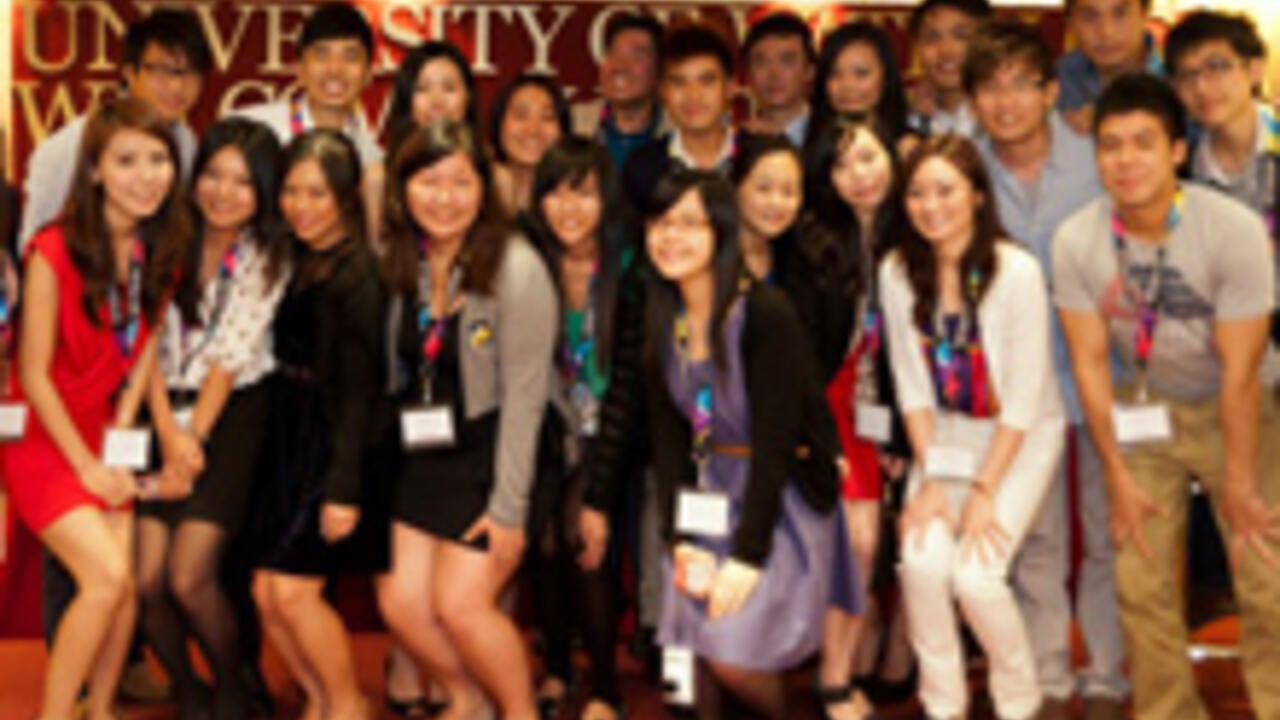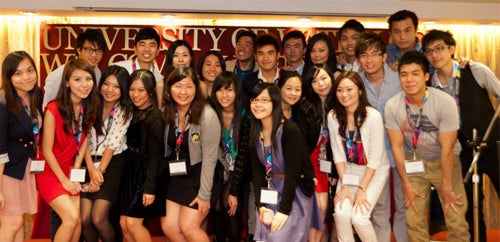
Waterloo’s rising profile in Asia strengthened by alumni and outreach
International opportunities abound for Waterloo students and alumni, as the university's reputation grows in Asia.

International opportunities abound for Waterloo students and alumni, as the university's reputation grows in Asia.
By Beth Gallager Communications & Public Affairs Ken McGillivray was part of a Waterloo team that travelled to Asia recently to share the University of Waterloo story with corporate leaders, government officials and academics in Hong Kong, Beijing, Shanghai and Singapore.
Ken McGillivray was part of a Waterloo team that travelled to Asia recently to share the University of Waterloo story with corporate leaders, government officials and academics in Hong Kong, Beijing, Shanghai and Singapore.
What Waterloo’s vice president, advancement discovered, however, was that the story is being told every day by hundreds of alumni already living and working in the region.
“These are alumni who have hugely successful careers internationally,” said McGillivray. “They credit their Waterloo degrees and their co-op experiences as among the major reasons they have been so successful there.
“It was very gratifying to get that kind of affirmation,” he added.
There are 2,000 University of Waterloo alumni living in China. During the recent trip in November, a new alumni chapter was established in Shanghai to complement the work already being done at the Hong Kong chapter, which was established 40 years ago and is the most active Waterloo chapter in the world.
The team that made the trip included deans, co-op staff and senior administrators. Staff from the Waterloo Commercialization Office (WatCo) was also in Asia showcasing new technologies to alumni.
McGillivray said the alumni he met are looking to hire University of Waterloo students interested in doing co-op placements. This is a positive thing because more students are looking to work outside of Canada during their co-op term. He added that many students are keen to get a foothold in the burgeoning Chinese economy because students who work abroad during their co-op work term, gain exposure to Asian business practices and build lasting relationships.
These kinds of connections enrich the already long-standing relationship between the University of Waterloo and China. Building those connections and advancing Waterloo’s mission in Hong Kong, the Chinese mainland and across Asia will be a key focus for Eva Cairns, who takes over as director of the Hong Kong office in January.
There are currently more than 50 agreements with Chinese institutions and the November trip was instrumental in forging new connections, said McGillivray. One of the top universities in China, Tsinghua University, is interested in enhancing its relationship with a number of faculties including the possibility of greater cooperation with Waterloo’s Institute for Quantum Computing and the Waterloo Institute of Nanotechnology.
These types of collaborations “really put us on the map with key universities in China,” said McGillivray.

Read more
Waterloo co-op student applies engineering and tech skills at Caivan to support purpose-built housing and build land-development expertise

Read more
Alum and founder Marc Lafleur shares how his entrepreneurship playbook has changed since selling his first company

Read more
How Doug Kavanagh’s software engineering degree laid the foundation for a thriving career in patient care
The University of Waterloo acknowledges that much of our work takes place on the traditional territory of the Neutral, Anishinaabeg, and Haudenosaunee peoples. Our main campus is situated on the Haldimand Tract, the land granted to the Six Nations that includes six miles on each side of the Grand River. Our active work toward reconciliation takes place across our campuses through research, learning, teaching, and community building, and is co-ordinated within the Office of Indigenous Relations.